#anomie
Photo
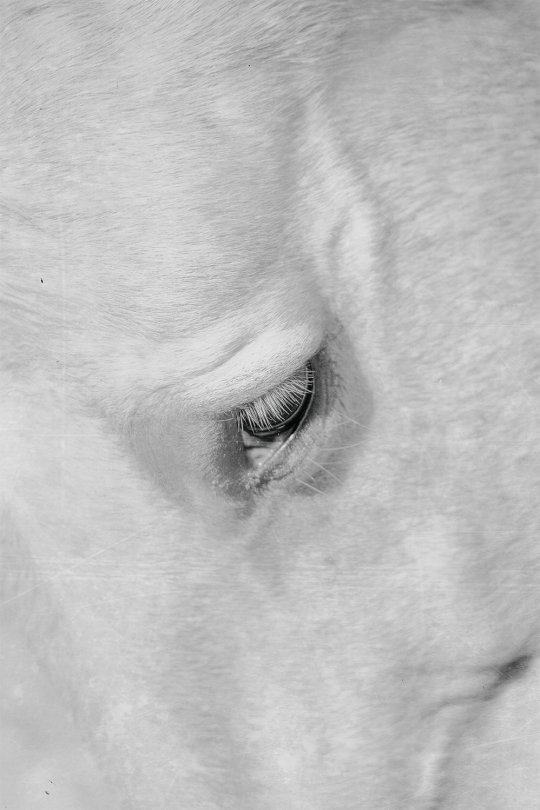
Quintin O'Connell - ANOMIE — BROAD
244 notes
·
View notes
Photo

Quintin H. O'Connell. From the «Anomie» series
Follow my new AI-related project «Collective memories»
34 notes
·
View notes
Text

14 notes
·
View notes
Photo
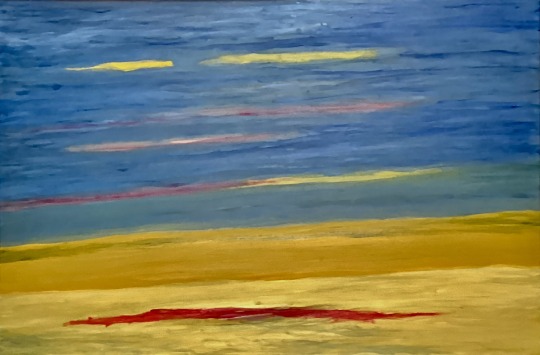
TORPOR, oil on canvas, 30 by 40 by 2. $ 1200. www.davidburchpaintings.com
#art#contemporary art#art on tumblr#primary colours#abstract landscape#linear#contrast#colour depth#anomie
29 notes
·
View notes
Text
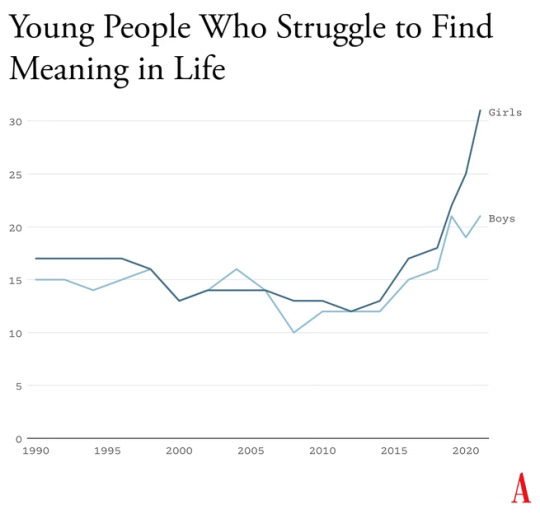
End The Phone-Based Childhood Now
A long-running survey of American teens found that, from 1990 to 2010, high-school seniors became slightly less likely to agree with statements such as “Life often feels meaningless.” But as soon as they adopted a phone-based life and many began to live in the whirlpool of social media, where no stability can be found, every measure of despair increased. From 2010 to 2019, the number who agreed that their lives felt “meaningless” increased by about 70 percent, to more than one in five.
6 notes
·
View notes
Text
youtube
IMPACTS of Earth Tipping Points on Societal Breakdown, Radicalization, Polarization, Anomie, Wars…
In recent videos I have discussed the major Earth System Tipping Points that we are fast approaching.
Here, I chat about how these nonlinear climate changes are likely to impact society. In fact climate change is already having profound impacts to human societies and is decreasing our resilience and even agency to respond.
Already, we are seeing increased societal breakdowns, social unrest, more conflicts, radicalization and polarization, and overall dysfunction and “anomie”. Anomie is an old sociological term for individuals losing interest and touch and connection with their communities.
For example, people living in high-rise buildings often don’t care about or even know anybody in their buildings, even next door neighbours.
As climate change accelerates rapidly, we are losing our window to respond in any meaningful way.
I discuss various case studies of interactions and connections between climate, physical changes, societal impacts, and effects for:
- AMOC collapse
- coral reef collapse
- Lake Chad drying up
- Amazon Rainforest Collapse
- Arab Spring
Basically, we are all connected. Nothing happens in a vacuum. Cascading domino like effects are all around us.
Please donates to http://PaulBeckwith.net to support my research and videos connecting the dots on abrupt climate system mayhem.
#overshoot#earth#society#global tipping points#war#climate change#the breakdown of society#ecosystems destruction#community#economy#Youtube#anomie#radicalization#polarization#polycrisis#Paul beckwith#amoc
3 notes
·
View notes
Text
Other Pride Flag

Othered: someone who belongs to the socially subordinate category of the Other.
Within LGBT+ perspective, people represented by the plus in the acronym are usually considered the "others" (it can be a reclaimed slur), but queer people as a whole can be othered, as well as any sociopolitically marginalized people as anomie in biopolitics.
Otherness, othering and alterity are also conceptualized in philosophy and psychology. Similar to subalternization in postcolonial studies and critical theory.
#othered#othering#otherness#other#others#subaltern#philosophy#postcolonial theory#critical theory#poststructuralism#anomie#biopolitics#society#sociology#psychology#mod ap#lgbt+#anomic#marginalized people#marginalization#marginalised#otherkin#alterhuman
45 notes
·
View notes
Text

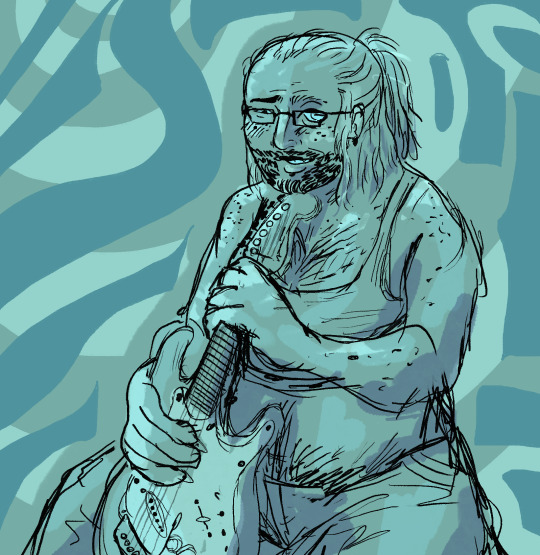
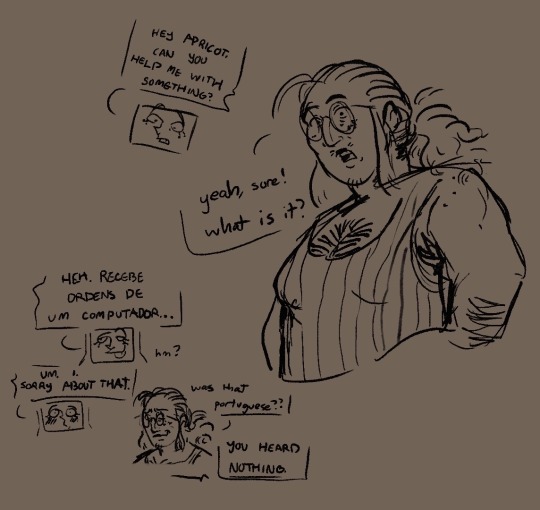
art of some of my objectum ocs! because why not
🤖 q [they/it] and cimon
🐸🎸 marco [he/they] and cassandra [it/she]
💾 apricot [they/any] and ber²y [he/it/any]
#art#digital art#objectum#robot objectum#instrument objectum#computer objectum#objectum art#note: tried to add image descriptions under a cut on this post but tumblr keeps replacing them ??#very strange. i hope judt having it in the images is ok#oc#original character#ANOMIE
22 notes
·
View notes
Text
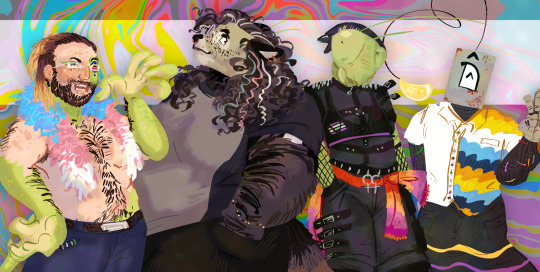
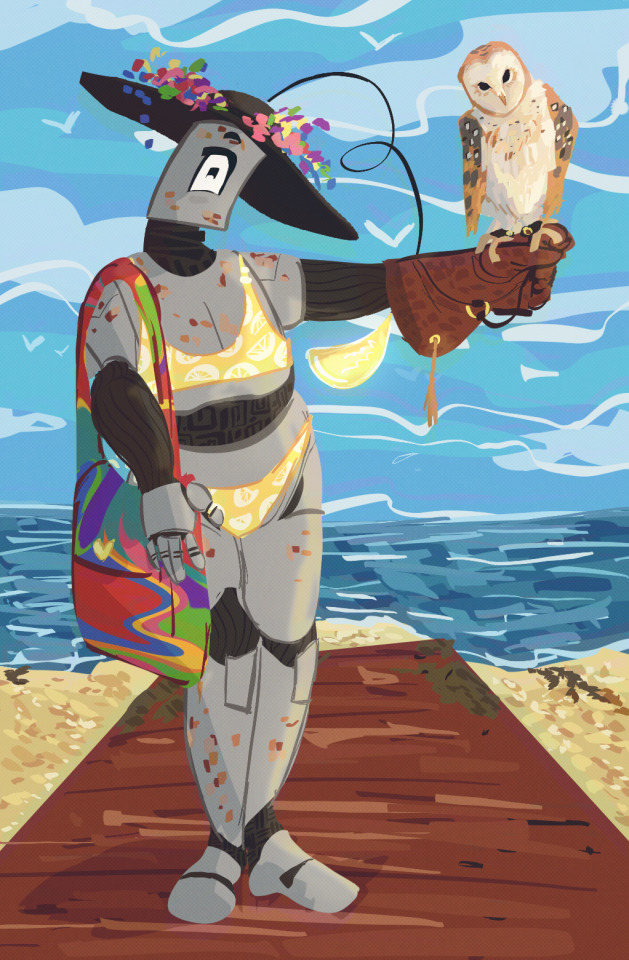


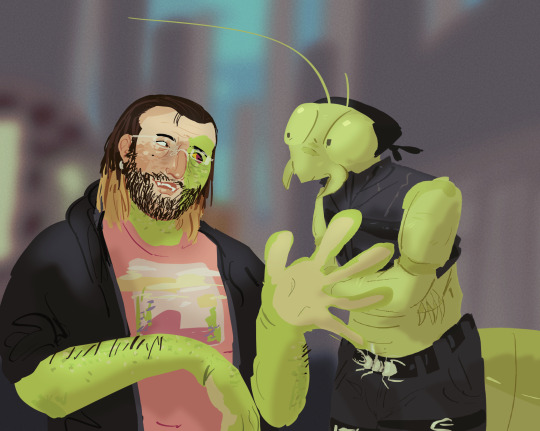
i realize i have not posted here much, so here's one to try and compensate for that! these characters are all from ANOMIE, a personal project of mine i've been working on for the past half year or so.
third image is heavily based off a photograph by gie knaeps (for getty images) of brian molko
image description(s) under cut
image 1: digital illustration of a group photo of anomie, a fictional band, consiting of marco, rice, eulalie, and Q. they are all wearing colors of their respective pride flags. marco, a half human half frog man, has eyeshadow in the colors of the aromantic and bi flag, with a boa with the colors of the trans flag. he wears interlocked male symbol necklace and double crescent earring. rice, a werewolf, has streaks of trans flag colors in hir hair and a non-binary bracelet, with generally subtle allusions to their identity. eulalie, a mantis, is in full rivethead fashion, with an aegosexual flag stiched into her top, parts of her beanie, and a lesbian flag coat tied around her waist. she also has an asexual symbol on a choker and a belt with interlocked female symbols. Q is a rusted one eyed robot with a curled antennae on their head with a light bulb at the end, like that of a female angler fish. it wears a shirt with the aroace flag colors on one side, ties around the cords on their arm in the colors of the gay flag, and a skirt with colors of the non-binary flag. they all strike poses and smile. [end id]
image 2: digital illustration of Q from anomie. they stand on a pier at the beach, wearing a sun hat with flowers, a bathing suit with a pattern of lemons, and a multicolored shoulder bag. on one hand, they wear a falcon glove, with a barn owl perched upon their gloved hand. [end id]
image 3: digital illustration of marco from anomie. he is younger than he appears in the first image, with a differently shaved beard and hair partially dyed blue and in braids that gradiate to red. a microphone obscures a small part of his face as he smiles, looking out at presumably a crowd. he hugs his guitar, a fender player stratocaster. [end id]
image 4: digital illustration of marco and rice from anomie. they both look significantly younger than the first image: marco has long, teal hair that fades downwards into red, and no beard or tail. rice has shorter , silver ombre hair, and fur around their muzzle that looks like a beard. their backs are turned to the viewer, faces visible as they face eachother, standing in front of a huge, theatrical curtain. marco looks at rice with a surprised and curious expression, raising his eyebrows far above his glasses. rice glares angrily at him, putting their ears back and frowning. marco grips his pants with his frog hands, seemingly about to take them off, with his boxers low enough to see his lower back. a slightly smeared lipstick kiss is partially visible above his boxers. [end id]
image 5: digital illustration of marco and eulalie from ANOMIE. marco is talking, raising a frog hand and tilting his head to look at eulalie. he wears a jacket and pink t-shirt, and eulalie wears a black bandana and her usual rivethead fashion. behind them is a very blurry city. [end id]
10 notes
·
View notes
Text
Anomie
From www.thoughtco.com
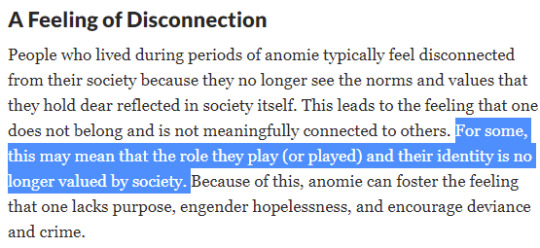
Women aren't women...They're people who menstruate.
She's not a pregnant woman...They're a person with a uterus.
She doesn't breastfeed...They chest feed.
With everything Jo has said about her feelings, the things that have seen her labeled a TERF, she's making a strong statement here about identity losing value in society and erasure.
She's been attacked by Anomie over and over and over.
And if you'd like to dig deeper into exactly what "anomie" is...I recommend reading the Wikipedia entry for it. Those who are in the know with Strike will find the last paragraph of particular interest. 😉
35 notes
·
View notes
Text
Durkheim´s Influence on The Ink Black Heart (Part 2)
In Part 1, I brought up that Émile Durkheim was the author of the quotation about anomie Robin stumbles upon at North Grove, and summarised his ideas on the topic.
In the second part of this post, I would like to analyse how Rowling explores the concept of anomie in The Ink Black Heart. *Spoilers ahead*
Rowling´s Understanding of Anomie
Though they're not part of the book per se, I thought it would be a good idea to discuss Rowling´s statements about the themes of The Ink Black Heart first:
[The Ink Black Heart] is a novel about disconnection. And people feeling disconnected in real life. And exploring what they find online as a way of connecting. (...) [The] central theme of the book is anomie, which is a state of lacking normal social or moral norms. (...) It is a very sort of modern malaise. (...) People losing meaning in their daily lives and – and feeling that they themselves were not really part of society. Not really part of a whole.
- The Ink Black Heart Q&A, 22th September 2022
The central theme of The Ink Black Heart is sickness. At the (dark) heart is anomie, a sickness of disconnection, the kind of amoral nihilism you find in people who find no place for themselves in any of the sustaining things that keep human beings grounded – real life friends, family, sense of purpose, meaningful work and so on. Then you’ve got obsession, which when extreme can become mental illness. In the mods of the game, we have a group of individuals who’ve latched on to TIBH and whose obsession becomes central to their lives. Most were looking for those things that keep anomie at bay – community, friendship, a hobby – and there’s nothing ignoble about wanting those things, we all need them. Yet things have become toxic inside the game: they thought they’d found an escape from the real world but there was a sickness in the online refuge they found, too.
- Twitter, 15th October 2022
Loss of meaning, uncontrolled emotions, social groups keeping humans grounded... All of these were discussed by Durkheim in Suicide.
Of course, there are some differences between Durkheim´s description of anomie and Rowling´s: for one, Rowling doesn't seem to draw a line between insufficient social interaction (egoism) and insufficient social regulation (anomie).
Then again, as pointed out by Durkheim, these concepts are intertwined: if you're isolated from society (egoism), it can't have that much of an influence over you, and if you rebel against social norms (anomie), you probably don't have much of a social life.
Using “egoism” without defining it properly first would be confusing to a modern audience as well, since we have a very different understanding of the term than Durkheim´s.
Now that we have seen how Rowling defines anomie, let's take a closer look to how it's used in The Ink Black Heart, beginning with the eponym character.
Anomie: A Revealing Pseudonym
‘In the first episode of the cartoon, Harty introduces himself as evil, quite cheerfully. Could someone who feels they don’t fit in with society see something of themselves in Harty? Is that why they’ve got so obsessive about the cartoon?’
‘You think we should add “evil and knows it” to the profile?’
‘You’re joking,’ said Robin, ‘but maybe we should… You know, I keep wondering why they called themselves “Anomie”. Wouldn’t you expect a superfan to choose the name of one of the characters? Calling themselves Anomie’s almost… almost declaring upfront what they are, isn’t it? “A lack of moral or societal values.” They’re being weirdly open about it… unless they’re just some disaffected teenager,’ she added, second-guessing herself. ‘It’s the kind of name a teenager might pick, I suppose. Somebody who’s feeling angry at the world.’
- The Ink Black Heart, 19
Shortly before Anomie is introduced as a character, we're told what Drek´s Game is really about:
Edie: (...) Drek’s game – the one in the cartoon—
Josh: —yeah—
Edie: —isn’t really a game. Or, I mean, it wasn’t supposed to be, was it?
Josh: Drek’s game is – you know [in Drek’s voice] ‘play the game, bwah!’… abide by rules. Do the expected thing.
TB: So it’s a metaphor?
Edie: Yeah, but it’s paradoxical, because Drek himself never plays by the rules. He just likes watching everyone else try and follow them.
- The Ink Black Heart, 5
“Never plays by the rules”, “likes watching everyone else try and follow them”... Over the course of book, we see Anomie, the “gamemaster”, doing exactly that. Rule 14, anybody?
In Suicide, Durkheim had explained that anomie could lead to homicide, if the state of exasperation it causes was not turned against oneself, but against others. I believe Anomie´s behaviour towards Edie Ledwell and his subsequent murder of her fits this pattern.
By the end of the book, we have been given further reasons why the pseudonym Anomie is so fitting:
involuntary celibate man. As mentioned in Part 1, Durkheim believed that celibate men are more vulnerable to anomie.
spends most of his time on the internet, a mode of communication which, not unlike industrialisation in the 19th century, has changed our lives to a great degree in the last decades.
Speaking of change, fellow Drek´s Game co-creator, Morehouse, uses a comet as an avatar on Twitter (Comet Morehouse?). Comets are associated in the human psyche with world-changing events. There's more: Morehouse´s real name, Vikas, literally means “growth, development”. Coincidence? I wonder.
stays shrouded in anonymity for years, which allows him to cyber-bully and catfish in impunity. Not being held accountable for one's actions translates to not being regulated by society, in my book.
has a position of power online, contrasting with his situation offline. Durkheim argued that the less limited you feel, the more intolerable any limitation seems. Anomie certainly seems to find “real life” intolerable:
“He didn’t want to go back to college, he just wanted to stay in his room and be Anomie…” - The Ink Black Heart, 107
lack of meaningful relationships
His family is dysfunctional, to say the least, and even the person who he supposed to be his friend (Morehouse / Vikas), he manipulates and ends up murdering.
lack of parental supervision
While he lives with his family, he might as well live next door. It took a call from his college for his parents to figure out that he had been lying all this time.
Through the character of Bram de Jong, we are shown how insufficient parental supervision can contribute to a lack of moral norms and promote deviant behaviour.
But anomie´s influence in The Ink Black Heart doesn't limit itself to one character. It hangs over the book like a dark cloud, casting a shadow over relationships, especially those of a sexual and/or romantic nature.
The Ink Black Heart: From Attachment to Resentment
(...) Robin glanced up at the stained-glass window again, trying to make out Edie or Josh. She had a suspicion they might be the two people picking fruit: both had long brown hair and the female figure was throwing apples down to the male. Then she noticed, with a little start of surprise, the ruby-coloured glass letters set across the top of the picture, like a biblical verse.
A state of anomie is impossible wherever organs in solidarity with one another are in sufficient contact, and in sufficiently lengthy contact.
- The Ink Black Heart, 39
On the glass-stained window at the North Grove Collective, which Robin first thought depicted a vision of paradise, Edie and Josh are framed as Eve and Adam. It is only after she notices them, that the Durkheim quote is brought to Robin´s - and the readers´- attention. Here's what I think it means:
According to the Bible, Adam and Eve are the first man and woman. Despite God forbidding it, Eve eats the fruit of the tree of the knowledge of good and evil - often depicted as an apple in western art - and offers it to Adam, who eats it as well. Spoiler: God is not happy and casts them out of paradise.
In a way, Anomie´s attack in Highgate Cemetery is a dark rewrite of this biblical event. In this version, Anomie breaks a taboo (murders) to punish the Creators (Edie and Josh) for having what he wishes he had (a love life, control over The Ink Black Heart).
There's also another way to interpret the above excerpt:
The apple symbolises Edie and Josh´s love. We know that at the time when Robin sees this scene, Edie and Josh´s romance is long over. It is but one of the many break-ups mentioned over the course of the book. For in The Ink Black Heart, relationships often end or do not start at all.
The utopia that Mariam depicts thus contrasts with The Ink Black Heart, fraught with romantic disconnection.
Let us go back to Durkheim and to his conception of a celibate man prone to anomie:
As [the unmarried man] has the right to form attachment wherever inclination leads him, he aspires to everything and is satisfied with nothing. This morbid desire for the infinite (...) very often assumes a sexual form which was described by Musset. (...) How can the feelings not be exacerbated by such unending pursuit? For them to reach that state, one need not even have infinitely multiplied the experiences of love and lived the life of a Don Juan. The humdrum existence of the ordinary bachelor suffices. New hopes constantly awake, only to be deceived, leaving a trail of weariness and disillusionment behind them. How can desire, then, become fixed, being uncertain that it can retain what it attracts; for the anomy is twofold. Just as the person makes no definitive gift of himself, he has definitive title to nothing. The uncertainty of the future plus his own indeterminateness therefore condemns him to constant change. The result of it all is a state of disturbance, agitation and discontent (...).
- Suicide: a study in sociology, Émile Durkheim (English Translation by John A. Spaulding and George Simpson)
The freedom to choose one's romantic or sexual partner has not waned since Durkheim wrote those words. Au contraire. Nowadays, most women also get to chose their partners. In western societies, extra-marital relationships have become the norm.
It stands to reason that the anomie stemming from a lack of direction in one's love life would not affect only unmarried men anymore.
Indeed, in The Ink Black Heart, many different characters struggle with deceived romantic hopes: Strike, Robin, Midge, Anomie, Hugh Jacks, Katya Upcott, Kea Niven, Preston Pierce, Madeline, Charlotte... Most of them form - or attempt to form - attachments to distract themselves from their disillusionment.
In Strike´s case this backfires spectacularly - as he gets to experience first-hand the feelings of disturbance, agitation and discontent anomie can evoke in a person when Madeline attacks him in Denmark Street - a foretaste of his stabbing by Anomie at the end of the book.
The final twist of the knife is given by Robin when she announces her upcoming date with Murphy. Strike then finally realises what had been right in front of his eyes for so long. A bit clueless for a detective, no?
But Strike isn't alone in his misery, as many of the above cited characters manifest some form of discontent or resentment. Still, he better shape up, if he doesn't want to regret his life choices X years down the line. I guess we'll see how he deals with his “unwelcome” realisation in the next book.
Concluding Remarks
Phew! This turned out to be longer than I expected.
While writing this, I ended up thinking about Leda. While she is barely mentioned in The Ink Black Heart, we know from the previous books that she lived an unconventional life, never staying in a place or in a relationship for very long - until she remarried, that is - and supposedly killed herself. If Leda decided to take her own life, what do you think would be the reason?
Sources
Durkheim, Émile. 1897. Le suicide: étude de sociologie.
Durkheim, Émile. 1951. Suicide: a study in sociology. Translated by John A. Spaulding and George Simpson.
robert-galbraith.com. 2022. The Ink Black Heart Interactive Q&A.
Rowling, J.K. 2022. Twitter, 15th October 2022, part of a Q&A organised by JKR´s Barmy Book Army.
Wikipedia. Comet Morehouse.
Wikipedia. Comet.
Wiktionary. विकास.
Wikipedia. Tree of the knowledge of good and evil.
WisdomPortal.com. Apple Symbolism.
8 notes
·
View notes
Text
The Ink Black Heart by Robert Galbraith
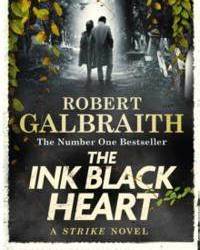
Title: The Ink Black Heart
Author: Robert Galbraith
Series: Cormoran Strike #6
Number of Pages: 1012
Genre: Murder & Suspense Thrillers
Publisher: Mulholland Books
Date of Original Publication: August 30, 2022
ISBN: 978-0316413039
This book literally took me all of May to read. 1012 pages down and now a wait until the next book comes out in September. The Ink Black Heart was my favorite book so far of the Cormoran Strike series.
Robin and Cormoran are partners of a private investigative firm, and they are back at it with another strange murder case from Galbraith. This one is about a couple who create a web cartoon series that gets turned into a game. Unfortunately for one of them, their life is ended and people within the game are being killed as well. The creator of the game admits to the first murder, but no one knows who he is. Strike and Robin are not cyber investigators, but they do their best and solve who the creator of the game and serial killer is.
I liked the characters in this book and the development of the recurring characters. The storyline was interesting and unique, and I did not find there to be any slow parts. Each new character had their own flaws and characteristics. There were multiple locations and events that occur that keep the reader guessing who the murderer is. I did not find it to be an easy solution. I look forward to book 7 of the series coming out in September.
The previous 5 books were frustrating because it’s obvious that Robin and Cormoran might start a relationship. However, it was noted that the progression between the two is slow. Now book 6 was a little ‘in your face’ with their relationship issues and them constantly trying to figure out if they like each other more than business partners. It was a little annoying. And in the end, there’s no resolve. Besides that, the only other negative thing I found about the book was that Galbraith killed my favorite character off. I would still recommend it to read.
★★★★★ Definitely recommend, but I recommend reading the series in order. Read the first 5 first.
~
Up Next: Hard to Breathe (Drake Cody #2) – Tom Combs
Yearly Goal Marker:
Book Goal: 12/75 – 16%
Page Goal: 4.6/10k – 47%
Follow me on LibraryThing, Goodreads, and Amazon. Same handle: OMBWarrior47
#Robert Galbraith#Cormoran Strike#Robin Ellacott#The Ink Black Heart#Anomie#Morehouse#Murder Thriller#Book Review
3 notes
·
View notes
Text

simply another layer to this never-ending process…
if you don’t know who I am, my name is Chris Hanson & I am a writer!
the best way to explain it is inscribed within these words:
#travel#poetry#photography#literature#art#reading#anomie#share#this is about a spiritual journey#magic
5 notes
·
View notes
Text
Capitalism, Durkheim wrote, is antithetical to creating and sustaining the relationships that are vital to social bonds. Capitalism rewards those for whom relationships are transactional and temporary. Relationships under capitalism are mercenary. They are part of the scheme for personal self-advancement and require the oily manipulation of others. To advance in a capitalist system it is necessary to build and then discard a series of ultimately hollow relationships. These empty relationships—and you can see them on display at any business gathering—contribute to the collective anomie and disintegration of social bonds.
Capitalism may cater to a natural desire among many for self-enrichment, but you don’t want this belief system to dominate society. Capitalism rewards single-minded narcissists and often con artists devoid of empathy and incapable of remorse. It rewards those focused exclusively on personal gain and self-aggrandizement. These dedicated capitalists often lack the capacity to form meaningful bonds, seeing in other people tools for commodification and exploitation. Once a capitalist class achieves complete control, as it has in the United States, it dismantles the structures that make social bonds possible, seeing in them an impediment to profit.
3 notes
·
View notes
Photo
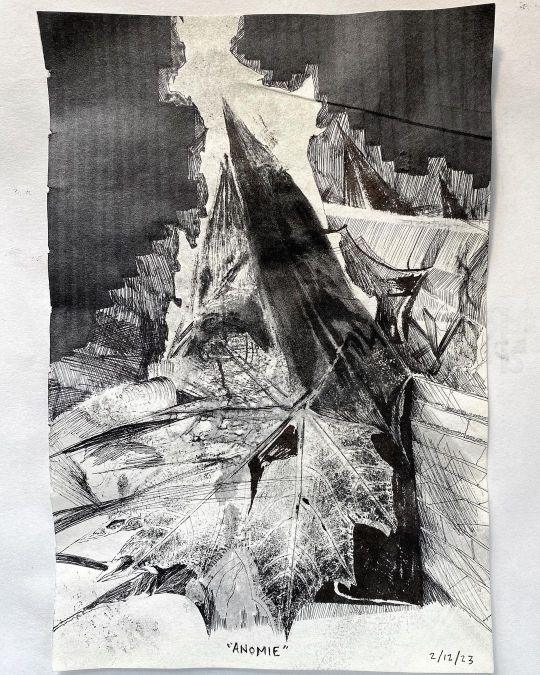
“Anomie” 2/12/23 - #anomie #drawing #sketchbook #drawingoftheday #photooftheday #sketchoftheday #artistofinstagram #collage #coloredpencil #ink #inkdrawing #art #artwork #artschool #artistlife #journal #honesty #radicallyhonest #watercolor #markers #alcoholmarkers https://www.instagram.com/p/ColEaCTLt6i/?igshid=NGJjMDIxMWI=
#anomie#drawing#sketchbook#drawingoftheday#photooftheday#sketchoftheday#artistofinstagram#collage#coloredpencil#ink#inkdrawing#art#artwork#artschool#artistlife#journal#honesty#radicallyhonest#watercolor#markers#alcoholmarkers
2 notes
·
View notes
Text
SCoR - Section II, Ch. 1, Part B "Origins of Institutionalization"
summary of “The Social Construction of Reality” by Berger and Luckmann, gotta repost because Tumblr fucked up the article slugs and I couldn’t link to individual posts correctly
I. Repeated actions become habitual/patterned, thus reproducible with less effort; NB this isn't a specifically social phenomenon.
II. Habitualization provides psychological relief of choice limitation, and also frees energy for times when innovation/deliberation is required to respond to a situation.
III. Habitualization also means we don't need to define each response on the fly; prediction becomes possible, even precise.
IV. Habitualization precedes institutionalization, and can take place in isolation, but in practice it takes place in the context of an institution or institutions.
V. institutions are formed when there is a reciprocal/multilateral typification of particular types of actions by particular types of actors ("the president shall address the congress")
VI. Inherent in the institution are: historicity and control. Historicity, because institutional patterns aren't formed instantly ("institutions always have a history, of which they are products"); control, because institutional patterns are typified, therefore limited, even regardless of actual enforcement behaviors or patterns as such that are part of the institutional structure.
VII. Institutionalization is incipient in every social interaction continuing in time.
VIII. That is, even two individuals thrown together without a shared social context WILL start to typify each other's behaviors - the initiation of roles, patterns of action, historicity, etc.
IX. The participants in this process benefit from it in that they end up with more ability to predict the other's actions - less astonishment/fear, more familiarity.
X. Any repetition tends to some degree of habitualization; any observation tends to some degree of typification; but in an ongoing bilateral social situation, certain actions are more likely to be habituated/typified. Which ones?
XI. Generally, that which is relevant to both parties (hereafter, A and B). This obviously varies based on material conditions, however, usually communications come first, followed by labor/sexual/territorial relationships, etc. all of which will be inflected by the prior socialization of A and B.
XII. Then, if A and B have a child ("C"), C will experience the parental patterns as objective historical givens, NOT contingent constructs.
XIII. In other words, prior to C, A and B construct a world that is entirely transparent and accessible to them, fluid and mutable. After C, and to C, this world is objective and opaque - and this also affects A and B since they now need to keep things more consistent for C's sake.
XIV. This is the birth of the social world we are familiar with, i.e. an objective fact received from without - the child takes it all for granted, the signifier IS the signified, etc.
XV. This extends to the world of institutions that we live within - objective, external, incomprehensible except via experience.
XVI. Nevertheless, this is still a human-constructed reality - "Society is a human product. Society is an objective reality. Man is a social product." - in an ongoing dialectical interaction.
XVII. Institutional reality also requires legitimation - ways in which it can be explained and justified to those who do not have a direct memory of its creation. These legitimations are learned as part of socialization into a given institutional order.
XVIII. As institutions depart form the original social processes that formed them, there is a corresponding increase in the need for more explicit mechanisms of social control - folks must be "taught to behave" then "kept in line."
XIX. In practice, mutual interactions between people or groups lead to multiple tracks of institutionalization which don't necessarily share a functional or logical integration.
XX. Nevertheless, institutions (which persist) do tend to some level of functional/logical coherence, implying some level of common relevance/shared meaning among participants. Note that role performances can (and must?) be functionally segregated, but MEANINGS tend to a consistency of some sort as people try to understand their experiences as occurring within some kind of framework. There may be a physiological cause for this drive*, but it isn't necessary to assume one to appreciate this habit as a real empirical phenomenon.
XXI. "It follows that great care is required in any statement… about the 'logic' of institutions." The 'logic' is not 'within' the institution, but rather is imposed by our reflections about that institution.
XXII. Language provides the fundamental well of logic which can be drown on to explain the institutional world, and all legitimations are expressed in language. This also connects with the social "knowledge" that the world one inhabits is a consistent and logical whole, since from that fact comes efforts to explain experience in terms of the pre-existing internalized social knowledge.
XXIII. So, institutions are integrated, but this is "not a functional imperative of the social processes that produce them;" rather, it is a byproduct of individual need to see their actions as part of a subjectively meaningful whole.
XXIV. Given this, it follows that analyzing social phenomena/institutional order would primarily depend on analyzing the understanding of the social knowledge of the people composing these institutions, of which complex theoretical legitimations are a part but by no means the whole. In fact, "the primary knowledge about the institutional order is knowledge on the pre-theoretical level," the sum total of "what everybody knows" about that order.
XXV. Since this knowledge is socially objectivated AS knowledge, deviations from it ("depravity", "insanity", "ignorance") occupy an inferior cognitive status; because this social knowledge is coextensive with "what is knowable," deviations are seen as deviations from reality itself. "Knowledge in this sense is at the heart of the fundamental dialectic of society… [it is] a 'realization' in the double sense… of apprehending the objectivated social reality, AND in the sense of … producing this reality."
XXVI. For example, in the course of division of labor, an area-specific body of knowledge is developed, crystallized in language, and transmitted to particular actors; the knowledge thus transmitted becomes an objectivation that serves to structure and channel further actions of its type.
XXVII. Then, this body of knowledge is available to the next generation as an objective truth which has the power to shape an individual into an instance of that actor, which definition only has meaning inside the social world that hosts this knowledge. With variation, this same process applies in ANY area of institutionalized conduct.
----
Notes:
re. V - The word "institutionalization" was used in the book where is used "formed"; "institutionalization" is overloaded to also mean "molding a human as an institutional actor" IMO (ref Brooksy from Shawshank Redemption)
re. XII - Unlearning the "objectivity" of parental dictates is probably a universal developmental phase? Or not - but maybe recognizing it is?
re. XVII - I can imagine an institution so totalizing that no legitimation is required - "force of nature" - conflict/discrepancies generate questions that must be answered, but if no discrepancies, no questions? Also implies that such institutions may already exist but we wouldn't know - because we don't question them or they are so universally taken for granted (i.e. the concept of death itself, see The Fable of the Dragon-Tyrant)
re. XX -
* I added the caveat about persistence - might be gratuitous, but seems relevant given my interest in institutional life cycles i.e. they CAN die or degrade or change, so how? Dis-integration of belief seems related, but is it symptom or cause? Or both?
** I think Energy Minimization IS this physiological (or even pre-physiological/physical) cause(? need? drive?)
re. XXI - Found this paragraph extremely surprising statement at first, but then less so - interpreted as another instance of "The institution is in our minds" - but might be wrong about this!
re. XXIII - So what happens if folks no longer feel the need or have the ability to do this integration of experience into a "meaningful whole?"
If institutional strength is in the minds of its members, then institutional weakness would result from folks not feeling a need to integrate their experiences into the institutional patterns
"all is vanity" - "integration is pointless" (cynicism?) as a concept is a degenerate simplicity, saving much effort - folks don't have to think hard about things or meaningfully engage with the world they inhabit, because all effort is proactively deemed a waste of time
and in a complex technical society such as ours, which is relatively productive and protective of its members, a given individual member doesn't NEED to engage with many of its structures in order to survive (vs. eg the medieval peasant of my imagining)
leads to a dislocation/disconnection/differentiation between 'social integrators' eg. folks who commit to institutional logics and embody them, pulling together and strengthening them, vs. 'social neutrinos' - folks existing without integrating or participating much ("consumers", maybe!)
hypothesis: industrial productivity gains not put into "shorter workdays" (i.e. fewer hours assigned to materially-productive labor) but rather in giving less of a shit about the world we find ourselves in; anomie/ennui
drivers(?)
existentialism/scientific revolutions driving human "place in universe" farther and farther out of center (Thomas Kuhn, Eric Hobsbawm)
nb existential philosophy seems to develop roughly parallel to industrial revolution, initially dislocated (kierkegaard?) provide language for those who follow
american "rugged individualism"
contra "network", individual DOES matter, but lives in a matrix (hah) of institutions that he believes he cannot influence - which makes it so
institutional immune systems - change-from-within resistance (Le Chatelier's Principle again?)
institutions also try to change their environment to be more hospitable (Legibility)
re. XXV - See also XVI for the cycle being described in more words here
#the social construction of reality#sociology#institutionalization#the shawshank redemption#energy minimization#cynicism#ennui#anomie#thomas kuhn#eric hobsbawm#existentialism#scientific revolution#rugged individualism#soren kierkegaard#network#le chatelier's principle#james scott#legibility#the fable of the dragon-tyrant
0 notes